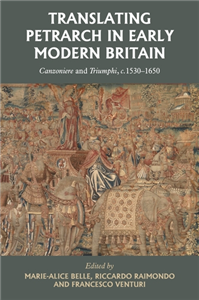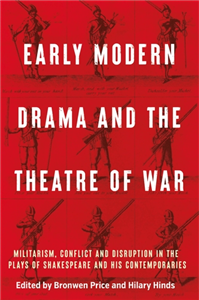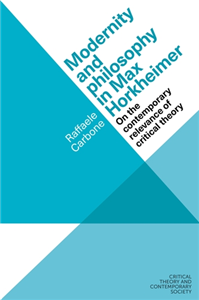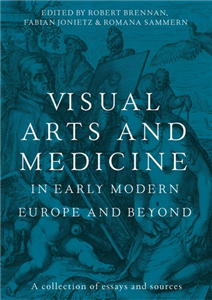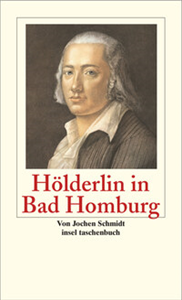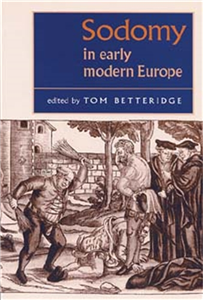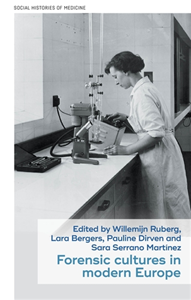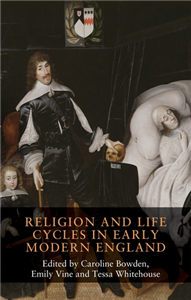Your Search Results
-
Promoted ContentThe ArtsJune 2025
Death in modern theatre
Stages of mortality
by Adrian Curtin
Death in modern theatre offers a unique account of modern Western theatre, focusing on the ways in which dramatists and theatre-makers have explored historically informed ideas about death and dying in their work. It investigates the opportunities theatre affords to reflect on the end of life in a compelling and socially meaningful fashion. In a series of interrelated, mostly chronological, micronarratives beginning in the late nineteenth century and ending in the early twenty-first century, this book considers how and why death and dying are represented at certain historical moments using dramaturgy and aesthetics that challenge audiences' conceptions, sensibilities, and sense-making faculties. It includes a mix of well-known and lesser-known plays from an international range of dramatists and theatre-makers, and offers original interpretations through close reading and performance analysis.
-
Promoted ContentLiterature & Literary StudiesAugust 2025
Translating Petrarch in early modern Britain
Canzoniere and Triumphi, c. 1530–1650
by Marie-Alice Belle, Riccardo Raimondo, Francesco Venturi
Translating Petrarch in early modern Britain gathers twelve essays by international scholars focusing on the translation of Petrarch's vernacular verse (Canzoniere and Triumphi) into English, from the Tudor age to the mid-seventeenth century (and beyond). Approaching translation as an interpretive process, but also a mode of literary emulation and cultural engagement with Petrarch's prestigious precedent, the collection explores the complex and interconnected trajectories of both poetic works in English and Scottish literary milieux. While situating each translation in its distinct historical, material, and literary context, the essays trace the reception of Petrarch's works in early modern Britain through the combined processes of linguistic and metric innovation, literary imitation, musical adaptation and cultural and material 'domestication'. The collection sheds light on the origins and development of early modern English Petrarchism as part of wider transnational - and indeed, translational-European literary culture.
-
 Trusted Partner
Literature & Literary StudiesOctober 2025
Trusted Partner
Literature & Literary StudiesOctober 2025Early modern drama and the theatre of war
Militarism, conflict and disruption in the plays of Shakespeare and his contemporaries
by Bronwen Price, Hilary Hinds
This volume explores the disruptive effects of militarism, war and social unrest in early modern drama. Engaging with Simon Barker's seminal work on dramatic representations of war and militarism, contributors highlight what often lies hidden beneath the surface of martial narratives, treating them as formative interventions in contemporary discourses, whether in justifying war, excluding dissident voices or shaping cultural identities. Discussions include new examinations of militarism, the figure of the soldier and early modern theories of war in Shakespearean tragedy, history and comedy, alongside antimasque and dramatic satire by lesser-known playwrights. The essays investigate how ideas of war underpin emerging concepts of gender, leadership, marriage and the family, as well as the continuing mobilisation of Shakespearean drama in the context of modern armed conflict. Together, they offer rich new contributions to the current lively critical debates on this topic.
-
 Trusted Partner
Literature & Literary StudiesJune 2022
Trusted Partner
Literature & Literary StudiesJune 2022The early modern English sonnet
Ever in motion
by Laetitia Sansonetti, Rémi Vuillemin, Enrica Zanin
This volume questions and qualifies commonly accepted assumptions about the early modern English sonnet: that it was a strictly codified form, most often organised in sequences, which only emerged at the very end of the sixteenth century and declined as fast as it had bloomed, and that minor poets merely participated in the sonnet fashion by replicating established conventions. Drawing from book history and relying on close reading and textual criticism, this collection offers a more nuanced account of the history of the sonnet. It discusses how sonnets were written, published and received in England as compared to mainland Europe, and explores the works of major (Shakespeare, Sidney, Spenser) and minor (Barnes, Harvey) poets alike. Reflecting on current editorial practices, it also provides the first modern edition of an early seventeenth-century Elizabethan miscellany including sonnets presumably by Sidney and Spenser.
-
 Trusted Partner
Literature & Literary StudiesApril 2021
Trusted Partner
Literature & Literary StudiesApril 2021Positive emotions in early modern literature and culture
by Cora Fox, Bradley J. Irish, Cassie M. Miura
-
 Trusted Partner
Literature & Literary StudiesNovember 2019
Trusted Partner
Literature & Literary StudiesNovember 2019Transnational connections in early modern theatre
by Pavel Drábek, M. A. Katritzky
-
 Trusted Partner
Humanities & Social SciencesApril 2020
Trusted Partner
Humanities & Social SciencesApril 2020Early modern war narratives and the Revolt in the Low Countries
by Raymond Fagel, Leonor Álvarez Francés, William G. Naphy, Beatriz Santiago Belmonte
-
 Trusted Partner
Humanities & Social SciencesJuly 2026
Trusted Partner
Humanities & Social SciencesJuly 2026Modernity and philosophy in Max Horkheimer
On the contemporary relevance of critical theory
by Raffaele Carbone
This book shows that Max Horkheimer's program of critical theory and his research throughout his career as a university professor and thinker are rooted in the cogency of philosophical questions and an in-depth knowledge of the historical development of philosophical problems in their close correlation with the socio-economic framework which shaped the 'bourgeois society' and the Modern Era. Indeed, his analyses of modern philosophers allows us to understand how the bourgeoisie seeks legitimisation and consolidation of its position, partly through the voices of its thinkers. In this way, in his investigation of early modern philosophy problems, and through constant dialogue with his colleagues Adorno, Marcuse, Pollock and Fromm, Horkheimer expresses a profound awareness of the critical force inherent in thought which, admittedly, is ever vulnerable to crisis and weakening, but which can always be reactivated.
-
 Trusted Partner
September 1988
Trusted Partner
September 1988Zerstörung des moralischen Selbstbewußtseins: Chance oder Gefährdung?
Praktische Philosophie in Deutschland nach dem Nationalsozialismus
by Peter Rohs, Forum für Philosophie Bad Homburg, Siegfried Blasche, Wolfgang R. Köhler, Wolfgang Kuhlmann, Alan Posener
Praktische Philosophie ist wesentlich Rekonstruktion von vortheoretischen moralischen Intuitionen und daher angewiesen auf ein grundsätzliches Vertrauen in die Gültigkeit des von ihr zu Rekonstruierenden. In kaum einem Teil der Welt wurde nun das Vertrauen in diese vortheoretischen moralischen Intuitionen derart tiefgehend und nachhaltig erschüttert, ja gebrochen, wie das in Deutschland durch den Nationalsozialismus geschah. Dieses Faktum bedeutet für die Moralphilosophie in Deutschland sowohl Chance wie auch Gefährdung. Es ist zugleich ein wichtiger Schlüssel für das Verständnis sowohl der besonderen Spannungen zwischen den verschiedenen Positionen der praktischen Philosophie innerhalb Deutschlands wie auch der Sonderstellung der praktischen Philosophie aus Deutschland gegenüber entsprechenden Bemühungen aus anderen westlichen Demokratien, die aus der ambivalenten Befangenheit der deutschen Philosophen resultiert.
-
 Trusted Partner
Literature & Literary StudiesApril 2020
Trusted Partner
Literature & Literary StudiesApril 2020The early modern English sonnet
by Laetitia Sansonetti, Rémi Vuillemin, Enrica Zanin, Tamsin Badcoe
-
 Trusted Partner
Literature & Literary StudiesMarch 2020
Trusted Partner
Literature & Literary StudiesMarch 2020Enacting the Bible in medieval and early modern drama
by Chanita Goodblatt, Eva von Contzen, David Matthews
-
 Trusted Partner
Humanities & Social SciencesJune 2026
Trusted Partner
Humanities & Social SciencesJune 2026Women in exile in early modern Europe and the Americas
by Linda Levy Peck, Adrianna E. Bakos
-
 Trusted Partner
The ArtsFebruary 2026
Trusted Partner
The ArtsFebruary 2026Visual arts and medicine in early modern Europe and beyond
A collection of essays and sources
by Robert Brennan, Fabian Jonietz, Romana Sammern
This book opens up new perspectives on the relationship between art, medicine, and science in late-medieval and early modern Europe. Looking beyond the traditional nexus of art, anatomy, and optics, the volume sheds light on a broader array of connections between artists and physicians: collaborations between painters and doctors on colour charts, handwork skills common to sculptors and surgeons, the transmission of art theory through medical texts long before the emergence of art writing itself as an independent genre, and the kinship of medical diagnosis with early modes of connoisseurship. Reconfiguring the histories of art, medicine, and science, the book also traverses conventional boundaries between physical and mental health, religious and medical modes of healing, menial and exalted forms of knowledge and labour, as well as vernacular and scientific understandings of human difference, including gender, race, and neurodiversity.
-
 Trusted Partner
Literature & Literary StudiesAugust 2024
Trusted Partner
Literature & Literary StudiesAugust 2024Instead of modernity
The Western canon and the incorporation of the Hispanic (c. 1850–75)
by Andrew Ginger
Instead of modernity goes to the very heart of comparative cultural study: the question of what happens when intimate, dynamic connections are made over place and time, what it is to feel at home amid the lavish diversity of culture. This ambitious interdisciplinary book reconsiders foundational figures of the modern western canon, from Darwin to Cameron, Baudelaire to Whistler. It weaves together brain images from France, preserved insects from the Americas, glass in London, poetry from Argentina, paintings from Spain. Flaubert, Whitman, and Nietzsche find themselves with Hostos from Puerto Rico and Gorriti from Argentina. The book ranges over theoretical fields: trauma and sexuality studies, theories of visuality, the philosophy of sacrifice and intimacy, the thought of Wittgenstein. Instead of modernity is an adventure in the practice of comparative writing: resonances join suggestively over place and time, the textures of words, phrases and images combine to form moods.
-
 Trusted Partner
January 2007
Trusted Partner
January 2007Hölderlin in Bad Homburg
by Jochen Schmidt
Zweimal zwei Jahre verbrachte Hölderlin in Bad Homburg. In jener Zeit entstanden einige seiner wichtigsten Werke, u.a. Hyperion und Der Tod des Empedokles sowie bedeutende Gedichte. Der vorliegende Band berichtet über Hölderlins Lebensgeschichte bis zum Ausbruch des Wahnsinns und bietet einen Überblick über seine geistige Welt, insbesondere seinen Philosophenkosmos und die literarischen Leitfiguren. Er zeigt auch sein politisch-revolutionäres Engagement in einer vom Spätabsolutismus bestimmten Zeit. Der Leser erhält eine bisher so nicht vorhandene, konzentrierte Darstellung zu Hölderlins Dichtung aus der Feder eines führenden Hölderlin-Forschers. Eine Auswahl von Gedichten und Bildern rundet diesen Begleiter zu Hölderlin ab.
-
 Trusted Partner
Literature & Literary StudiesApril 2025
Trusted Partner
Literature & Literary StudiesApril 2025Speculative endeavors
Cultures of knowledge and capital in the long nineteenth century
by Selina Foltinek, Karin Hoepker, Katrin Horn
Speculative endeavours contributes to an emerging field of scholarship that focuses on alternative forms of knowledge production and speculation in nineteenth century US-American society. It sheds light on unofficial knowledges such as insider information, rumour, gossip, slander, emphasising how knowledges excluded by institutional discourses and authorities form a core part of the developing market economy. Ranging from the Early Republic to the Gilded Age, contributions analyse entanglements of financial, cultural, and social capital. They focus on social actors who differ from the newly minted ideal of the (free, white, male) entrepreneurial individual. The speculative endeavours discussed include illicit communications located in slave quarters and domestic spaces, communal interventions into a commercialised print market, debates on immigrant fiduciary and legal competency, and disciplinary techniques of pecuniary pedagogy. Taken together they offer unprecedented interdisciplinary insights into an emerging age of capital.
-
 Trusted Partner
Humanities & Social SciencesAugust 2002
Trusted Partner
Humanities & Social SciencesAugust 2002Sodomy in early modern Europe
by Joseph Bergin, Tom Betteridge, Penny Roberts, Bill Naphy
This fascinating collection of essays reflects closely the main areas of debate within gay historiography. For the last twenty years scholars have argued over the nature of early modern sodomy, responding in a number of different and contradictory ways. Questions addressed in the book include: was early modern sodomy the same as modern homosexuality? Were there homosexuals in early modern Europe? Did men who had sex with each other in this period regard their behaviour as determining their identity? What was the relationship between the grave sin of sodomy and the homoerotic images that fill Renaissance culture?. The volume includes essays on sodomy in English Protestant history writing, in Calvin's Geneva, in early modern Venice and the trial of sodomy in Germany. ;
-
 Trusted Partner
Humanities & Social SciencesJanuary 2017
Trusted Partner
Humanities & Social SciencesJanuary 2017Heresy and inquisition in France, 1200–1300
by John H. Arnold, Peter Biller
Heresy and inquisition in France, 1200-1300 is an invaluable collection of primary sources in translation, aimed at students and academics alike. It provides a wide array of materials on both heresy (Cathars and Waldensians) and the persecution of heresy in medieval France. The book is divided into eight sections, each devoted to a different genre of source material. It contains substantial material pertaining to the setting up and practice of inquisitions into heretical wickedness, and a large number of translations from the registers of inquisition trials. Each source is introduced fully and is accompanied by references to useful modern commentaries. The study of heresy and inquisition has always aroused considerable scholarly debate; with this book, students and scholars can form their own interpretations of the key issues, from the texts written in the period itself.
-
 Trusted Partner
Humanities & Social SciencesAugust 2023
Trusted Partner
Humanities & Social SciencesAugust 2023Forensic cultures in modern Europe
by Willemijn Ruberg, Lara Bergers, Pauline Dirven, Sara Serrano Martínez
This edited volume examines the performance and role of scientific experts in modern European courts of law and police investigations. It discusses cases from criminal, civil and international law to parse the impact of forensic evidence and expertise in different European countries. The contributors show how modern forensic science and technology are inextricably entangled with political ideology, gender norms and changes in the law and legal systems. Discussing fascinating case studies, they highlight how the ideology of authoritarian and liberal regimes has affected the practical enactment of forensic expertise. They also emphasise the influence of images of masculinity and femininity on the performance of experts and on their assessment of evidence, victims and perpetrators. This book is an important contribution to our knowledge of modern European forensic practices.
-
 Trusted Partner
Humanities & Social SciencesOctober 2021
Trusted Partner
Humanities & Social SciencesOctober 2021Religion and life cycles in early modern England
by Caroline Bowden, Emily Vine, Tessa Whitehouse
Religion and life cycles in early modern England assembles scholars working in the fields of history, English literature and art history to further our understanding of the intersection between religion and the life course in the period c. 1550-1800. Featuring chapters on Catholic, Protestant and Jewish communities, it encourages cross-confessional comparison between life stages and rites of passage that were of religious significance to all faiths in early modern England. The book considers biological processes such as birth and death, aspects of the social life cycle including schooling, coming of age and marriage and understandings of religious transition points such as spiritual awakenings and conversion. Through this inclusive and interdisciplinary approach, it seeks to show that the life cycle was not something fixed or predetermined and that early modern individuals experienced multiple, overlapping life cycles.





